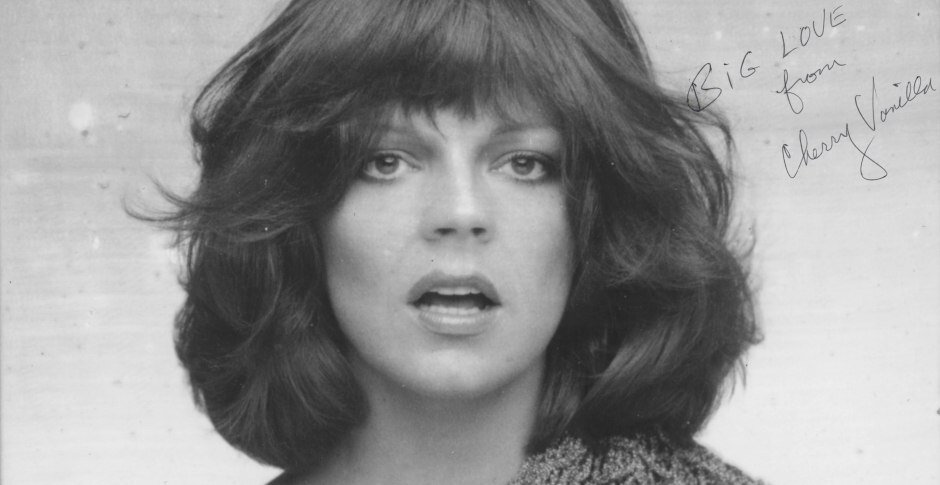Cherry Vanilla: There was a palatable buzz in the air, and it was coming from the young
Written by Eva Csölleová, Vítek FormánekI have known name Cherry Vanilla from various articles about Roxy club 1977.I was always curious to know more about her since she looked fantastic and was interesting person. So, I wrote onto her email and to my surprise she replied very enthusiastically almost immediately and not only sent me signed photos but put and effort into sending me back the very interesting answers. I was delighted, over the moon and honored.
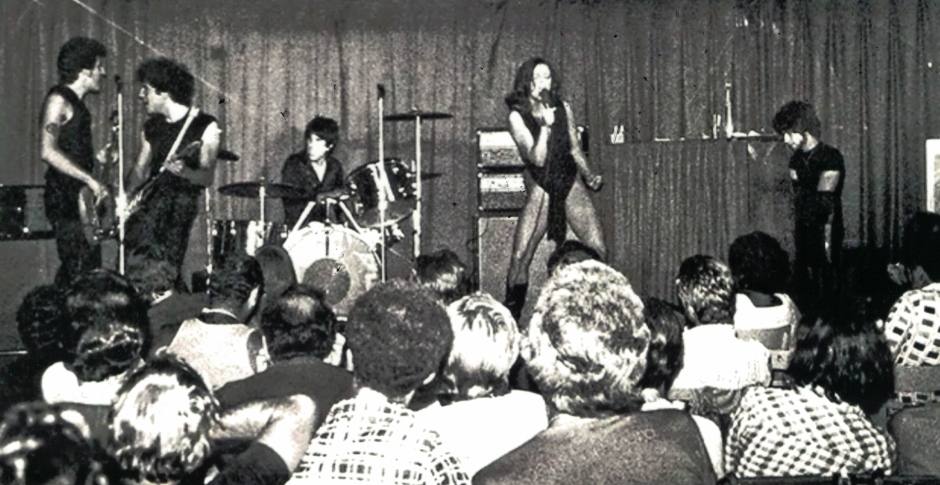
What was it like living in New York are in mid-40´s and 50´s? Was it trouble-free life or many restrictions, segregation, hatred, fear of communism etc?
We did duck-and-cover in school, but didn't seem to pay much mind to things like Russia or the Atom bomb at home. Life was never trouble-free though. I knew it was a struggle for my parents to pay the bills and keep four children fed, educated, safe and healthy. And we were Catholic, so it meant we had to follow the moral code of that religion. We had rules, and my parents were strict. At the same time, we had a show-biz connection and a taste of that world, thanks to my mother's job at New York's famous Copacabana night club. And that made our ordinary/mundane/day-to-day lower-class life endurable ... because we had an inside glimpse of another whole side of life ... a fascinating, more colourful, more magical, more hopeful side of life.
Was you father fighting in the war? In Navy or Air-force or no every male American was drafted?
No, my father was never in the military. He was a Dept. of Sanitation chauffeur for the Borough Superintendent of Queens in New York City. He somehow missed the draft back then, because of a technicality when the draft age changed for young men. My brother served two years in the army, for which he had volunteered. But that was not really in war-time.
Do you remember birth of rock´n´roll´, what was it like in New York, did Elvis, Bill Haley or Jerry Lee Lewis rule the America or New York was always separate community of its own? Have you seen The Beatles live in USA?
Ah yes, it certainly began with Elvis when I was about twelve or so. But even before Elvis, I was deeply into what is still my favourite music: rhythm & blues. In the 1950's, if you didn't tune into the black stations, you would hear tracks on your AM radio by Doris Day, Tony Bennett, Dean Martin, Johnny Mathis, the Kingston Trio and Alvin & The Chipmunks. And they were played in rotation with the likes of Elvis, Ray Charles, Fats Domino, Buddy Holly and such. It was kind of all just considered pop music back then. Rock & roll didn't really claim a recognizable image of its own until the early 1960's. That's when the fashions, hairstyles, clubs, drugs, radio stations and the whole rocker attitude ultimately kicked-in. And by 1967, when New York's WNEW-FM played Roll Over Beethoven for the first time and went progressive, the pioneering era of ROCK was a lock! By Woodstock in 1969, I think the most glorious pre-pubescent era of rock & roll had actually peaked ... the most startling, courageous and rebellious years of it anyway. Of course, there was still so much incredible rock & roll music that followed. I never saw the Beatles live, but I did meet and see a couple of them perform individually over time. I remember one fun night with my girlfriend, Nancy Andrews at a Ringo Starr recording session in New York City, when he and Nancy were a couple. And I did a private performance of my Romeo & Juliet poem, The Story for John and Yoko at their Dakota apartment on John's thirty-sixth birthday.
By Woodstock in 1969, I think the most glorious pre-pubescent era of rock & roll had actually peaked ... the most startling, courageous and rebellious years of it anyway
You were 25 when flower-power movement came in and Vietnam war was on. Were you part or hippie´s culture and did you enter demos against war? Could you tell me about the vibes and feelings of late 60´s in USA, I think it was vibrant time everywhere be it Paris or Prague. Why do you think that happen?
For us in the US, it was a combination of the birth control pill, psychedelics, the mini-skirt, the Kennedys, integration of the races, social classes and gay culture, cheap jet travel, safe hitch-hiking, affordable rents, FM radio, etc. They were the positive and productive things. And then having the Viet Nam War to protest and condemn, being able to make a political statement via the forms of entertainment, fashion, drugs, relationships and so forth that we indulged in, that made everything feel so important, powerful and exciting. There was a palatable buzz in the air, and it was coming from the young. The media labelled it a youthquake. We in New York City saw ourselves as being more urban and sophisticated than hippies, whose image seemed to emanate mostly from San Francisco. San Francisco hippies tended to wear colourful ponchos and ethnic costumes, whereas New Yorkers were more into hard-edge biker-wear and metallic outfits, and were as heavily into acid and speed as the west-coast kids were into pot and magic mushrooms. But we were all truly hippies in our attitudes and beliefs. I, for one, didn't refer to myself as a hippy until the label was long out of style. By then I was proud to have personally earned the term. I attended the big anti-war protest in Washington D.C. in 1965 and many more of the smaller ones in New York. And yes, it all did make for a most vibrant time, especially in the US and in Europe, a very very vibrant time indeed.
How did you get to know Andy Warhol and did he ask you to play in Pork or you asked him for that? Was he weird or genius?
I was an actress in underground theatre, really just extremely low-budget, da-da-esque plays and performance-art pieces that were happening all over lower Manhattan at the time, often involving nudity, and with a hefty dose of glitter and insanity. Andy used to attend them with his entourage, and that added immensely to their pop-art credibility. He also hung out in the back room at Max's Kansas City, as did we all who were keen to be on the scene back then. Andy had apparently taken note of my acting skills when he saw me playing a necrophiliac nurse in Jayne County's World, the Birth of a Nation. So, when it came to casting the title character for the London production of Pork, Andy asked the play's director, Tony Ingrassia to bring me up to the Factory for an audition. When asked if I knew any hymns from catholic school, I did Dear Lady of Fatima for him, and got the part. Weird or genius? Both, I guess. He was so quiet and soft-spoken, and yet the whole world knew his name.
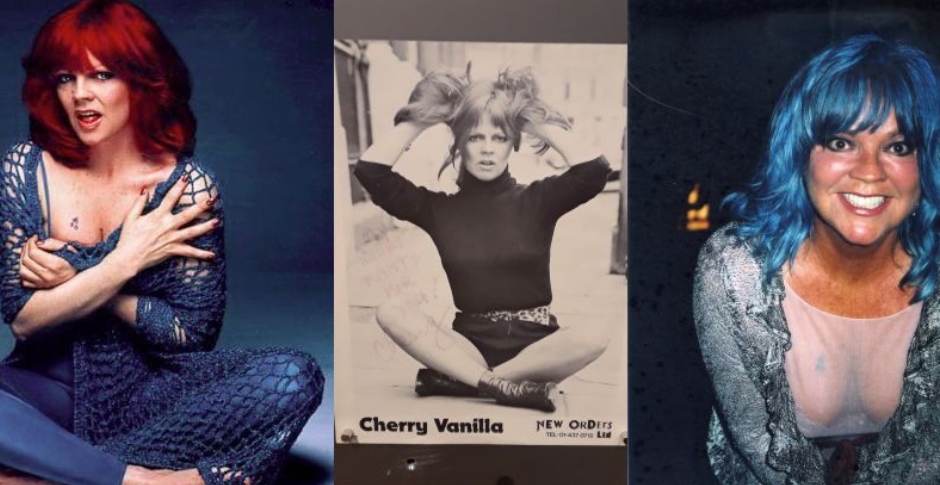
Was it your idea to offer a blow job to any DJ who would play David Bowie record or he asked you to be outrages for he could break through? Did you have problems with police due to these marketing techniques?
Though I flippantly said things like that in interviews I was doing for David, the truth was actually just a bit different. I had dated several rock radio DJs in my time, and when they said they had never heard of David Bowie, I supplied them with his records and reminded them of how much they admired my taste, both in men and in music. If there were any disc-jockey blow-jobs involved, they had most likely happened before even I knew who David Bowie was. So, it was never really a direct quid-pro-quo, so to speak. But it sounded so naughty that way, that it helped to create the word-of-mouth (sic) that we needed to promote David's music. The police never bothered us at all.
Tell me, why girls become groupies? Is it part of youth excitement and adventure, aren´t they afraid of veneral disease or is it better for their CV to be known that she was shagging Mick Jagger?
Girls become groupies because the rock world tends to be heavily populated with beautiful and talented young men. And young girls usually have healthy sexual appetites, just like the guys do. And if you loved music, then concert tickets, good seats, backstage passes and parties were a bonus. STD's exist in all fields of endeavour, so you could just as likely get one from a stockbroker as you could from a rock star. Some groupies are just looking to add notches to their non-chastity belts, and some want to be famous themselves. Me, I just wanted to be as close as possible to the men and the music, make friends, have fun, get laid and work in the biz.
I was an actress in underground theatre, really just extremely low-budget, da-da-esque plays and performance-art pieces that were happening all over lower Manhattan at the time, often involving nudity, and with a hefty dose of glitter and insanity
How did you team up with Gordon Sumner and Stewart Copeland? Were you friends or just teamed up to break on new punk scene? Were you jealous that later they became famous as The Police or it was obvious they were desperate to break through and be famous?
Miles Copeland came to one of my shows in NYC. My bass player was so drunk that night, he fell off the stage. Miles said that if I brought my guitarist/boyfriend, Louie Lepore and keyboard player, Zecca Esquibel to the UK, he would book us some gigs. Miles's brother, Stewart Copeland had just formed a three-piece band called the Police and Miles said that they could be my rhythm section and opening act. So, I got the Police their very first gigs. We toured around Europe and the UK on and off for maybe six months/a year. Jealous? I don't know. I guess I wouldn't mind having their money. But what I do know is that by now, my 80th year on the planet, I have come to realize what a super-interesting and exciting life I have had. I mean, I went on to forming the incredible relationships and experiences I've had with artists like Vangelis, Tim Burton, Rufus Wainwright, Roger Waters, Chet Baker, Cameron Crowe, and more in the post-Police years. And I often wonder if I would have been open and available to those experiences if my rock & roll career had taken off to the degree that the Police did. Am I jealous? I honestly don't think so. I just hope they are as healthy and happy at this stage of life as I am ... and content with the road they chose to travel. Sting had the ego of a rock star long before he got famous. It was always pretty obvious that he would go far.
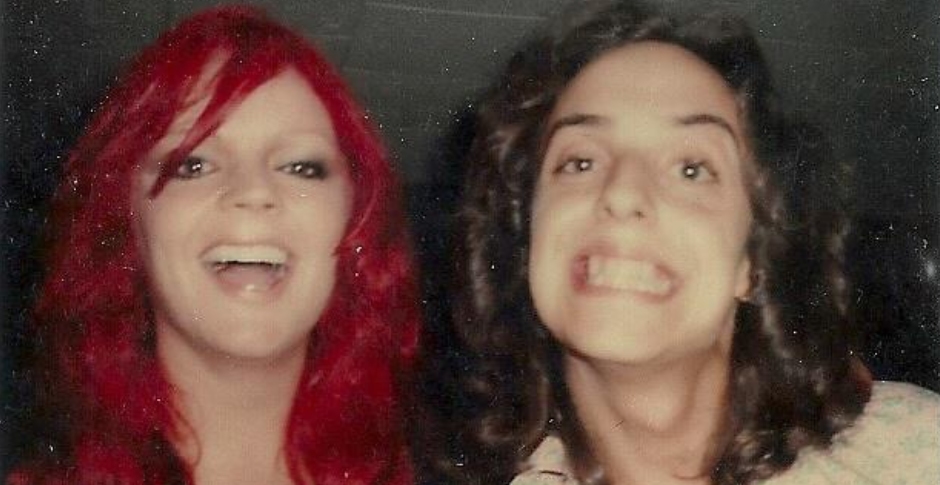
How long were you part of London punk scene and were/ are you, punk rocker in your heart or you just jumped at bang wagon for a while? Didn´t you feel “old” for punk rocket at the age of 34?
We in the US mostly termed the music we made as garage rock, because the majority of the New York bands, making the kind of stripped-down/throw-back rock & roll music that we were making, never really got to play beyond the drummer's parents' garage, be it in Brooklyn, Queens or Staten Island. When the magazine, PUNK came out and the Ramones entered the scene, punk just instantly seemed a better moniker than garage-rock. Hard & fast was always one of my favoritemantras, I guess. So, I think I had always been pretty naturally a punk. And I still don't feel "old" being a bit punk at the age of 80! Punk is an attitude. And there is no age limit on attitude.
When you returned to USA in early 80´s were you part of CBGB community or Ramones, Blondie, Iggy Pop were never your friends/mates?
I never played CBGBs. And I didn't really hang-out with the bands you mention. I played Max's Kansas City a lot, and a number of other NYC rock clubs of the era. I did a play with Debbie Harry and Blondie, Vain Victory by Jackie Curtis. I also did a play with Patti Smith, Island by Tony Ingrassia. By the 80's I was pretty much over my punk-rocker phase. I did some cabaret, a few reunion rock shows and had all kinds of odd part-time jobs, including as a gardener, a florist, a mutuals clerk at the race tracks, a Lancome make-over artist in department stores, a lecturer at Pace University, a writer/reporter for US, European and Australian magazines, an actress/model/muse for photographer Bruce Weber, an undercover researcher for missing and exploited children, etc. I hardly knew the Ramones. And Iggy lived mostly in LA by that time, so I didn't see much of him. There was more of a community feeling among the NYC bands in '77, before I went left for London, than there was when I got back in 1980.
Punk is an attitude. And there is no age limit on attitude
Later-on you worked with Roger Waters and Vangelis which was totally opposite music to punk rock. What appealed to you on them?
I had always been hot for Roger Waters, way back to early Pink Floyd days. So, when Michael Kamen introduced me to him properly at his home recording studio all of those years later, it was a major thrill. And especially since I was meeting him as a fellow artist, hired to do some spoken word and sound effects on his Pros & Cons of Hitchhiking album, which Michael was co-producing with him at the time. He invited me to his TINAD concert in Los Angeles last tour and treated me like a queen. So nice when a fellow artist, especially such a famous and important one, cares enough to do that. As for Vangelis, he was the most incredible human being I have ever known, not only totally tuned-into the many worlds beyond this one, but also totally tuned-into me. His kindness, talent, love and generosity, as well as his delightful sense of humour and understanding of both human nature and the nature of the universe was beyond that of any other artist I have ever known. I have been so incredibly blessed to have known and worked with these glorious men, whose music I will love forever as much as I've loved them. My musical tastes are certainly not limited to rock & roll.
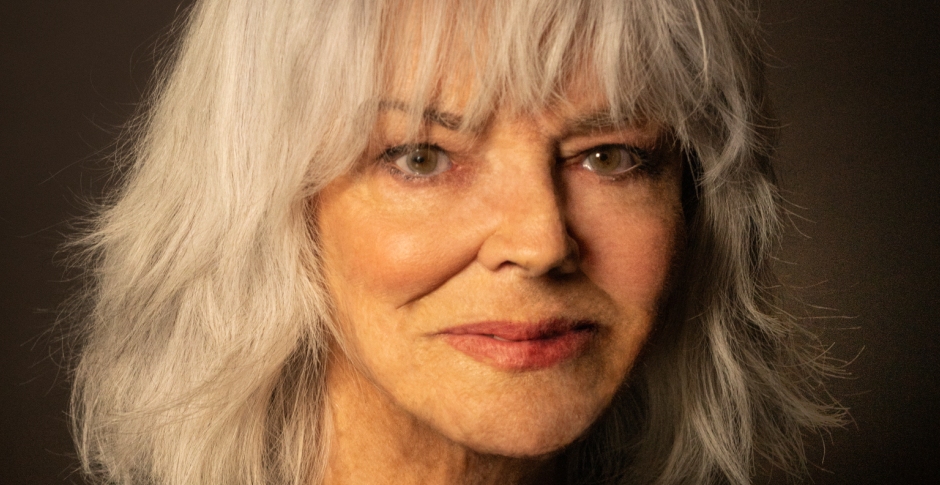
Now you celebrate 80th birthday. If you look back which part or your life or which decade was the most satisfying one and which one the most exciting one?
As for "exciting," all things considered, I guess I would have to say, my thirties. It's when I spent the most time on stages of all kinds, and that's always a magical place to be. My body was still so young, nubile and energetic in my thirties. Though I must say it also served me well for many decades beyond that. I did a lot of psychedelics in my thirties and I had so many new experiences, including all things dangerous, sexual and exotic. Life was such an open road with so many possibilities and all of them seeming so achievable. But as for "satisfying," that would have to be now, me in my eighties. It's only now that I am content to accept every aspect of the decisions I made throughout my life as the right ones for me. It's only now, with the realization that my time here is almost over, that I can see the totality of the lifetime that's behind me and understand the benefits of its many peaks and valleys.
If you compare America or 50´s 60´s and now what would be the result. I can´t believe where America- the so-called land of freedom of speech –has gone these days.
Well, I've thought about that a lot lately, of course. And I can't help but come back to that opening line in A Tale of Two Cities, written by Charles Dickens in 1859. "It was the best of times it was the worst of times." And I guess in a way it's always like that. It's simply the nature of the beast, and we either learn to rock & roll with it ... or not.
Thank you very much.
Photo, thanx: archive of Cherry Vanilla


